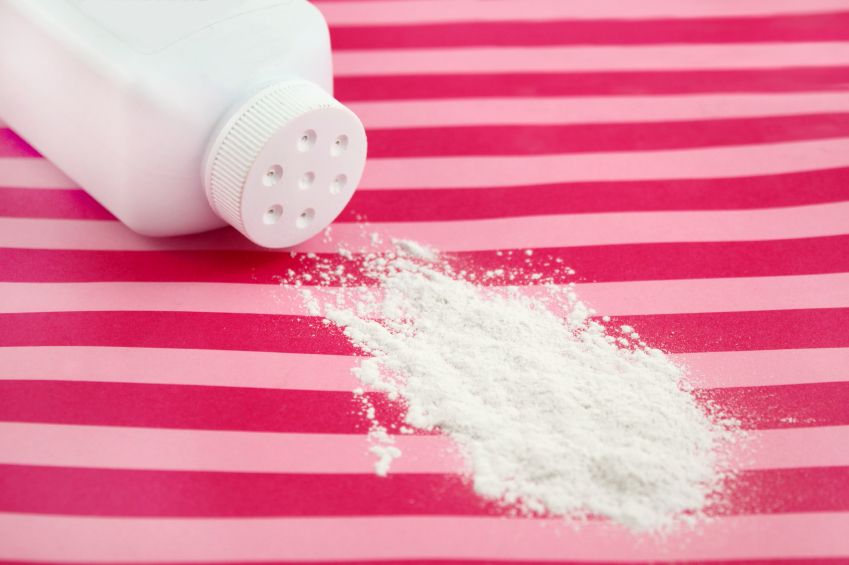 A number of women have filed legal action against Johnson & Johnson after developing ovarian cancer, allegedly as a direct result of using the company’s talcum powderproducts.
A number of women have filed legal action against Johnson & Johnson after developing ovarian cancer, allegedly as a direct result of using the company’s talcum powderproducts.
Talcum powder has been a staple bathroom product for generations in America, with many consumers using it for a variety of purposes. However, there has been concern over the alleged connection between talcum powder and ovarian cancer.
Over 20 different studies have been conducted observing the link between ovarian cancer and talcum powder since 1971, with an analysis of these studies released in 2003. The data of this analysis came from 16 of the studies and concluded that women who used talcum powder were 33% more likely to develop ovarian cancer.
Johnson & Johnson has allegedly known of this problem since 1982, but failed to to warn the public of these risks, according to plaintiffs. This statistic was cited in a recent talcum powder cancer lawsuit in 2013, when the plaintiff referenced a landmark study in the 1982 issue of Cancer that showed that women faced a 92 percent increased risk of ovarian cancer when using talcum powder.
The lawsuit claims that Johnson & Johnson either knew or should have known of the ovarian cancer risk that women have when using either their Baby Powder or Shower-to-Shower talcum powder in the genital area. Following the 1982 study, researchers suggested that Johnson & Johnson update their talcum powder products’ warning labels to include ovarian cancer.
Overview of Talcum Powder Cancer Allegations
Over the next three decades since the initial studies, 21 studies were performed observing women using talcum powder, with each study finding a correlation between cancer and hygiene product. One of the most recent studies was published in June 2013 in the Cancer Prevention Research, which also found that women who used talcum powder faced an increased risk of ovarian cancer.
Talcum powder is made from the magnesium and silicon material talc, which is mined in rock form. These rocks are then dried and crushed into a fine powder that can absorb moisture, making it an effective tool against different hygiene issues such as dry skin, diaper rash, and skin irritation.
For generation,s women have been using talcum powder on their genital areas to prevent vaginal odors or to stay cool, but this has been allegedly causing problems for women across America. When applied to the genital area, the talc particles travel through the fallopian tubes and eventually settle in the woman’s ovaries.
These particles then stay sedentary but then cause normal cells to develop into cancer cells. Ovarian cancer progresses quickly and is often diagnosed at a later stage, leading to many deaths and long-term consequences.
Currently, the National Cancer Institute and the American Cancer Society warn against using talcum powder on the genital area. Despite this concern, Johnson & Johnson and other talcum powder manufacturing companies have yet to place any talcum powder cancer warnings on their products’ labels.
Do YOU have a legal claim? Fill out the form on this page now for a free, immediate, and confidential case evaluation. The attorneys who work with Top Class Actions will contact you if you qualify to let you know if an individual lawsuit or class action lawsuit is best for you. [In general, baby powder cancer lawsuits are filed individually by each plaintiff and are not class actions.] Hurry — statutes of limitations may apply.
ATTORNEY ADVERTISING
Top Class Actions is a Proud Member of the American Bar Association
LEGAL INFORMATION IS NOT LEGAL ADVICE
Top Class Actions Legal Statement
©2008 – 2025 Top Class Actions® LLC
Various Trademarks held by their respective owners
This website is not intended for viewing or usage by European Union citizens.
Get Help – It’s Free
Join a Free Baby Powder Cancer Class Action Lawsuit Investigation
If you used Johnson’s Baby Powder, Shower to Shower, or another talcum powder product and were diagnosed with ovarian cancer, you may have a legal claim. Family members of loved ones who died of ovarian cancer can also join. Submit your information now for a free case evaluation.
An attorney will contact you if you qualify to discuss the details of your potential case at no charge to you.












